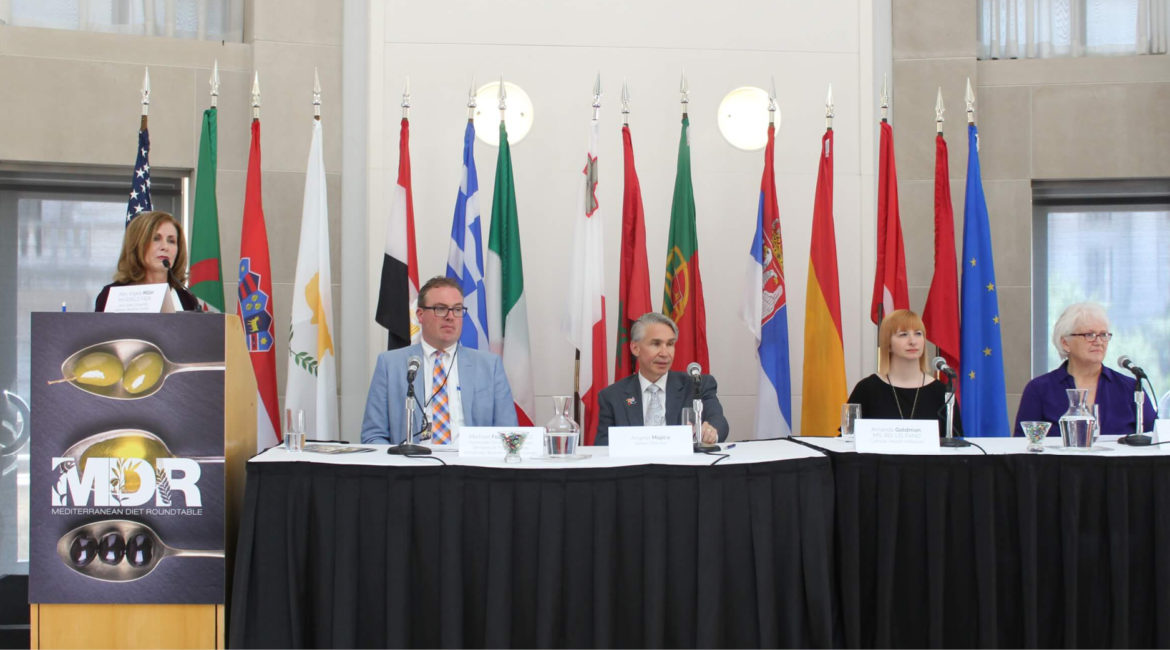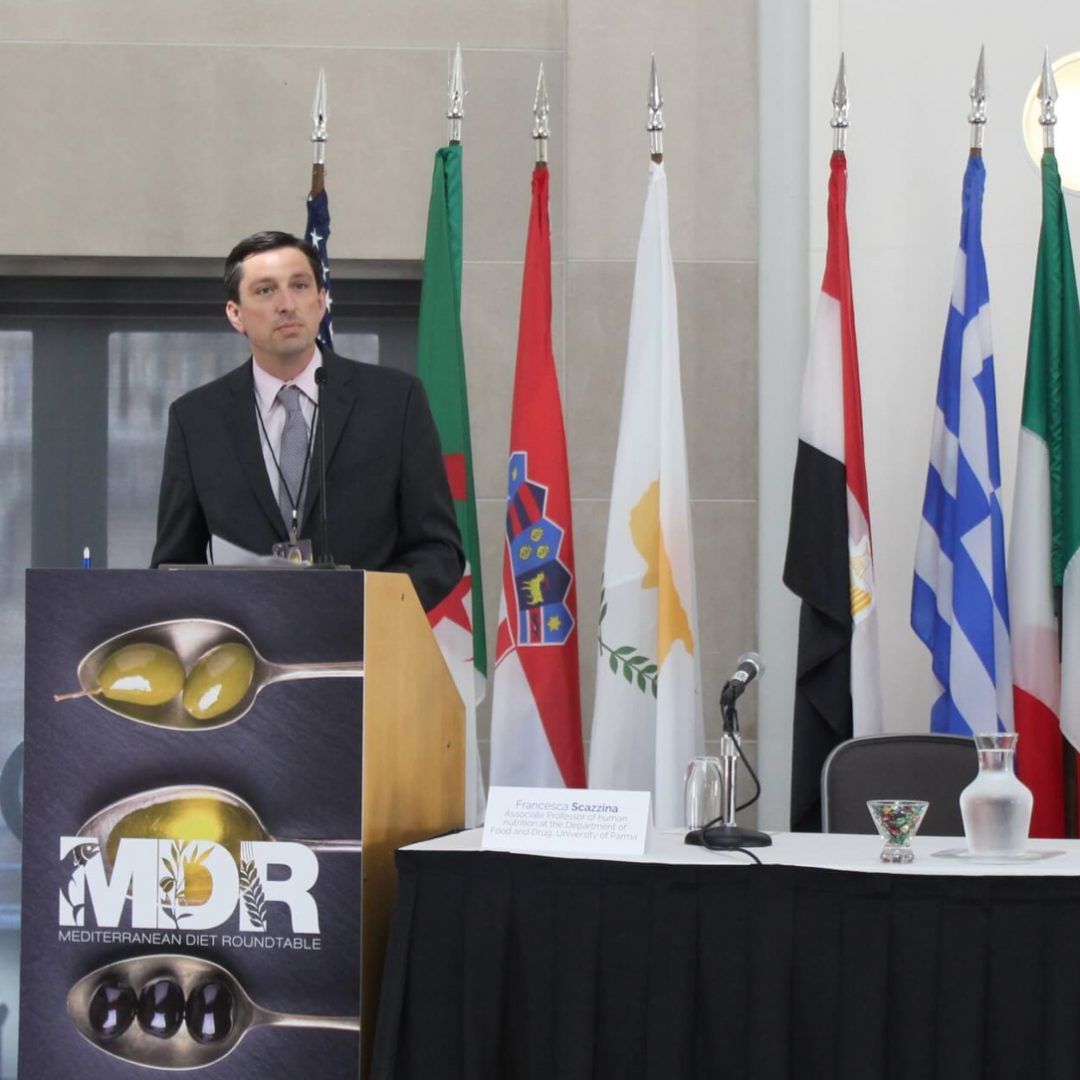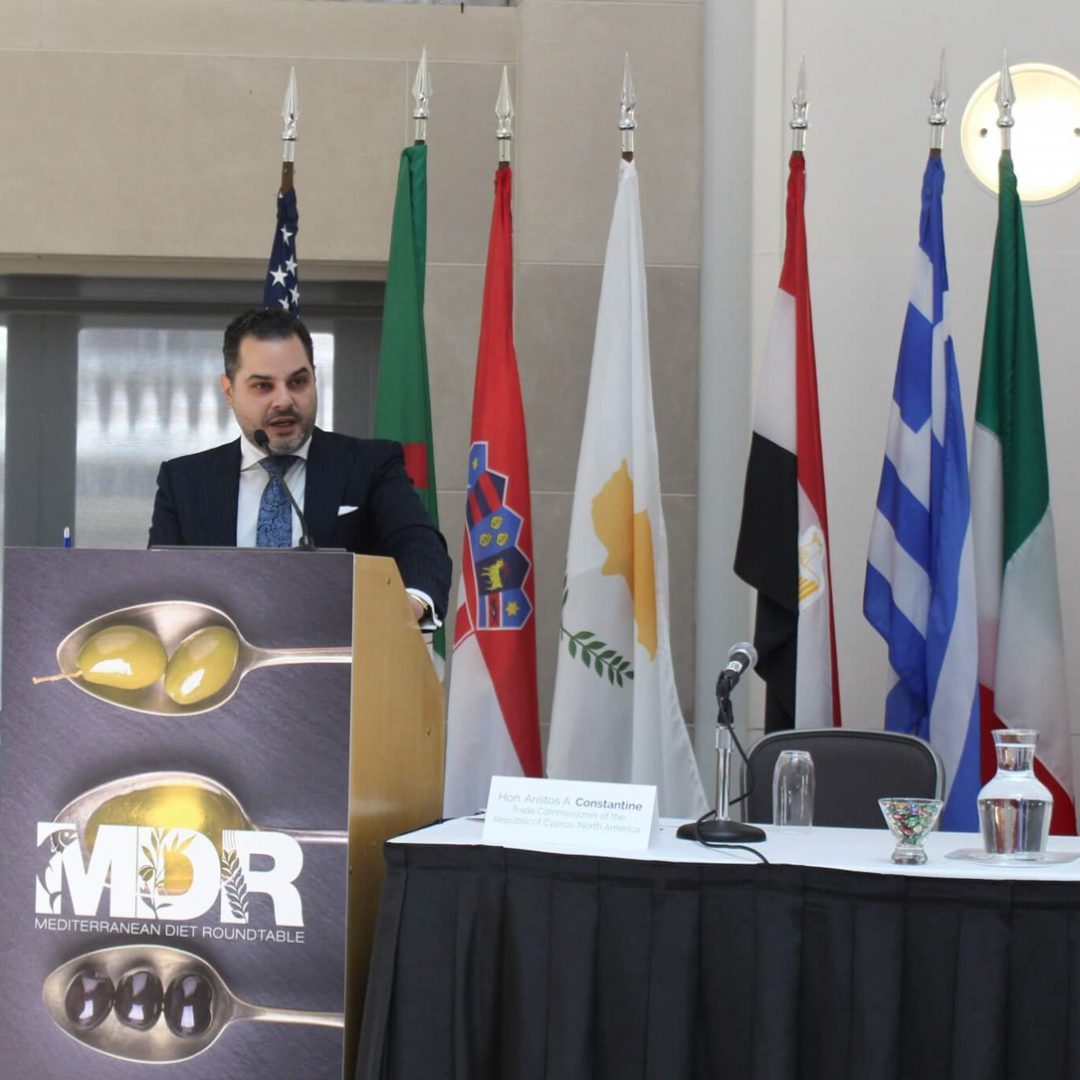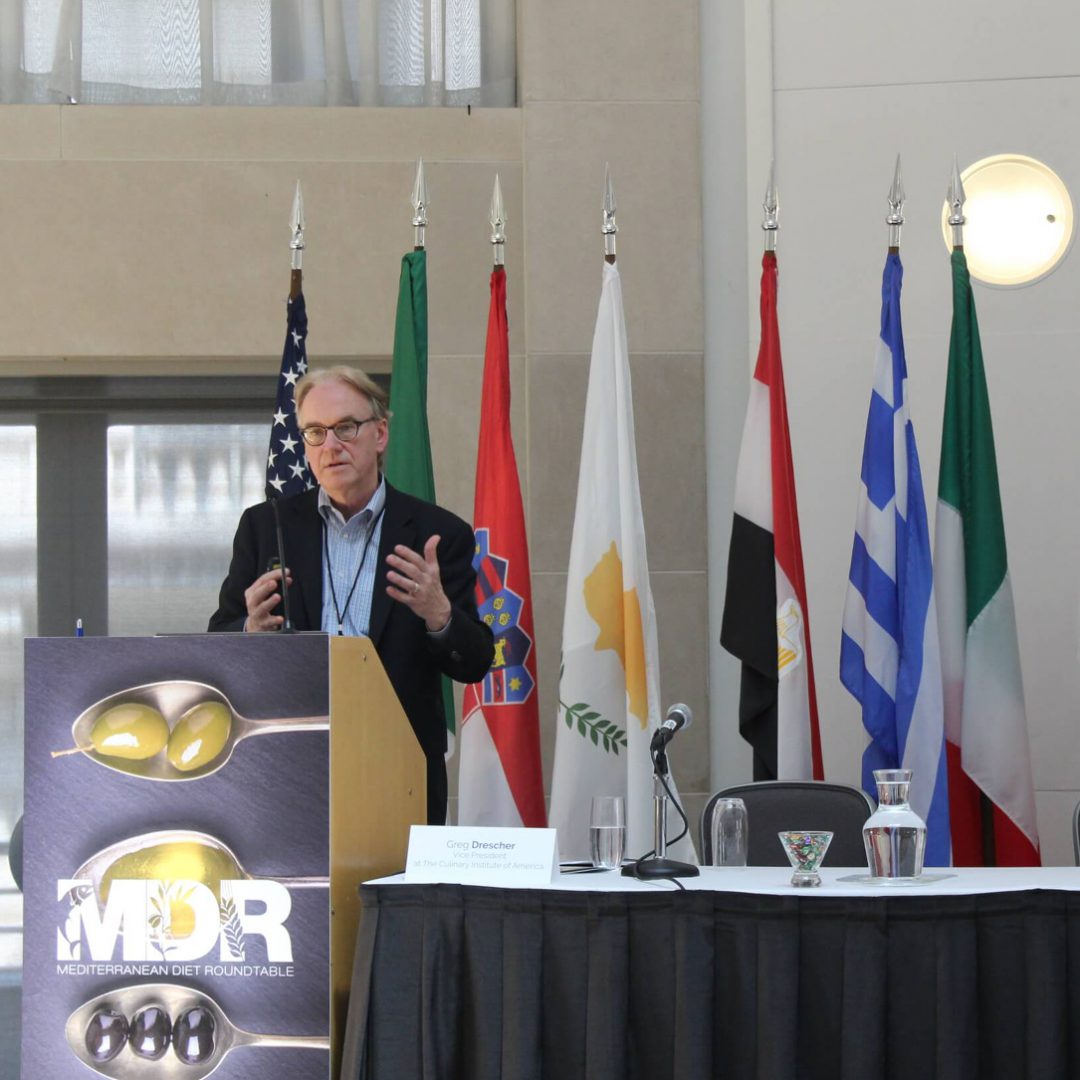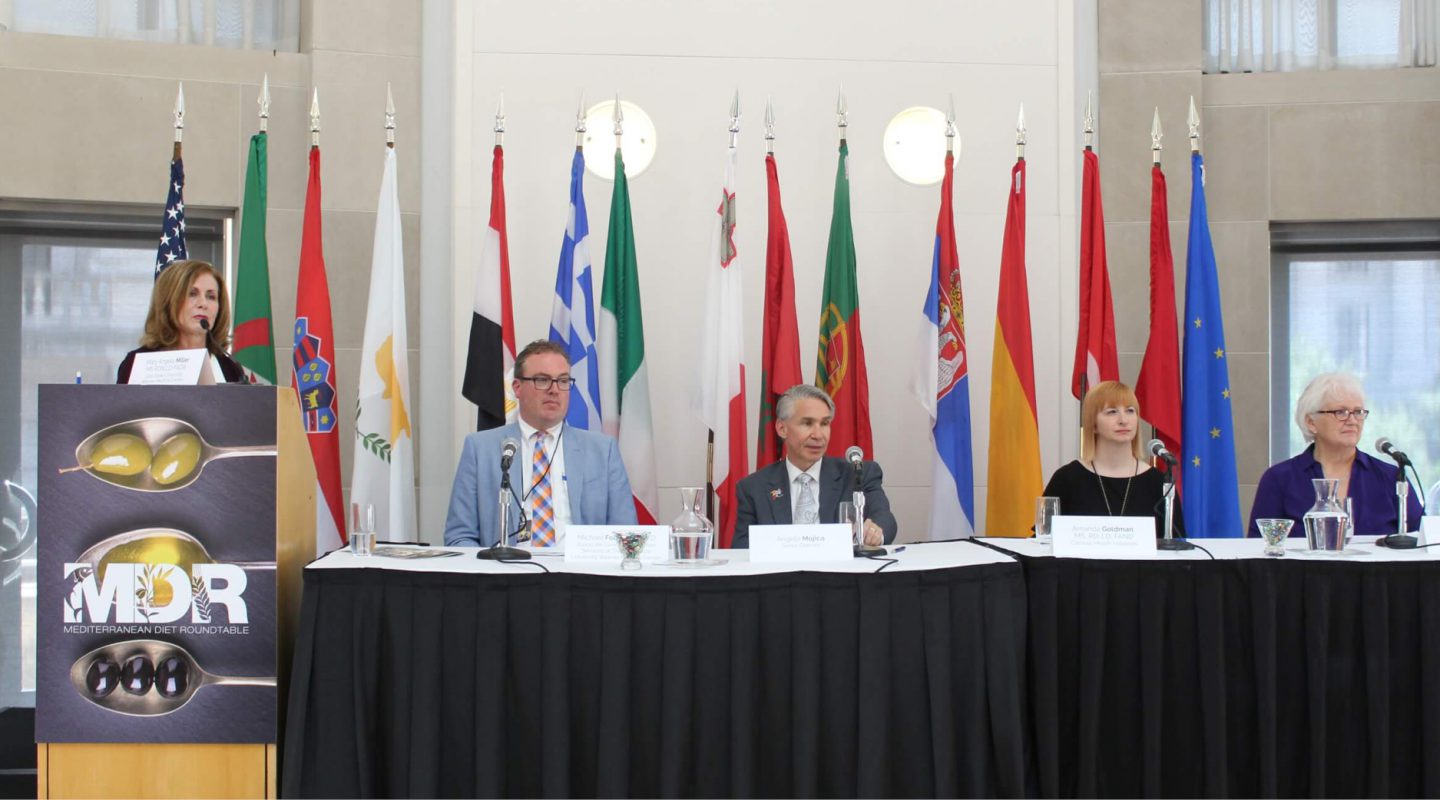
On June 27, trade experts, scientists, and food industry professionals gathered at the Ronald Reagan Building and International Trade Center (RRB/ITC) for the annual Mediterranean Diet Roundtable (MDR). This conference is an experiential and inspirational opportunity for scientists and food industry leaders to discuss dietary trends in America. Along with conversation, speakers and guests enjoyed a delicious MDR standard-approved lunch curated by RRB/ITC’s talented culinary team.
The lineup of speakers included Andrew Gelfuso, Vice President of Trade at TCMA and Director of the World Trade Center Washington, DC (WTCDC), Hon. Aristos A. Constantine, Trade Commissioner of the Republic of Cyprus for North America, and Greg Drescher, Vice President at The Culinary Institute of America.
Gelfuso commenced the discussion with welcome remarks honoring WTCDC’s partnership with the 2019 Mediterranean Diet Roundtable team, and his enthusiasm to explore how nutritional science can be translated into food policy for the wellbeing of the general population.
Constantine led the conversation on the core values of the Mediterranean Diet, and the importance of bringing small farmers and producers in to the global value chain. Constantine explained the fundamentals of the Mediterranean Diet—balanced nutrition, healthy living and simplicity— are universal. “The diet is a testament to common heritage, which reflexes values of hospitality, neighborliness and inclusivity of our region,” Constantine said. Speaking about the importance of small farmers, Constantine said “Whilst each of us needs to promote respective industries and products independently we have no need to compete with each other."
Drescher gave insight into the Menus of Change Initiative, and connecting the Mediterranean Diet in larger frameworks. The initiative includes 24 principles of healthy sustainable menus containing concepts such as serving red meat less often, choosing healthier oils, and reducing added sugars. Drescher explained that ultimately, the “plant-forward” approach is the way to go.
“We agree that directionally, following the Mediterranean Diet means a shift towards more plant rich foods,” he said. Commenting on the agenda for the future, Drescher said they are looking to increase awareness of the “traditional, plant forward Mediterranean Diet around its potential to contribute to the adoption of planetary health dietary patterns, deepen our engagement around technique, flavor strategy, and the world heritage of Mediterranean home cooking, and reverse the decline of the Mediterranean Diet in the Mediterranean region.”

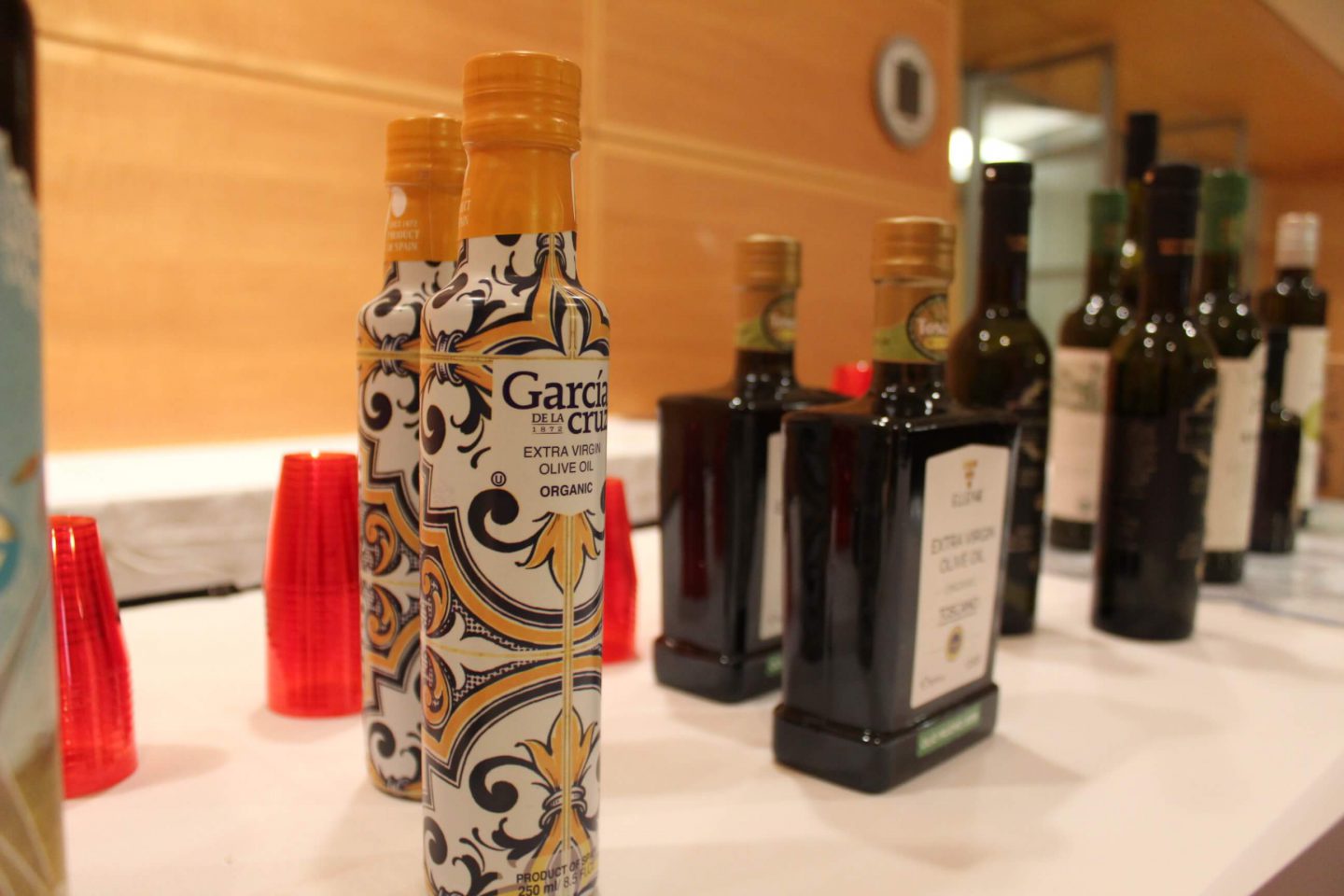
Other speakers included Laurent Amzallag, creator and head coach of Laurent’s Transformation Plan, who explained his passion for inspiring people to stay healthy. “Once you do a little exercise, you feel better,” he said about the importance of physical health. “Little behaviors yield big benefits.” Amzallag brought guests to their feet for an interactive demonstration of some of the little exercises that can complement a Mediterranean diet. Parke Wilde, a professor at Friedman School of Nutrition Science, Tufts University, addressed food security and hunger measurement, and the economics of food assistance programs. “You need to understand policy debates at every stage of the food marketing chain,” Wilde said.
The Mediterranean Diet can be summarized in Drescher’s words: "For us it is all about deliciousness in the most direct path at the intersection of health, sustainability and cultural discovery."
